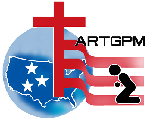
 捐助 Donate
捐助 Donate
America Return to God Prayer Movement
Home ![]() Literature
Literature ![]() 12 Principles that Made America Great
12 Principles that Made America Great
12 Principles that Made America Great
--Eternal Rules of Order, From Book: America, Return to God
 By
Bill McCarthy
By
Bill McCarthy
Our first president, George Washington, stated in his first inaugural address, "The propitious smiles of heaven can never be expected on a nation that disregards the eternal rules of order and right that heaven itself has ordained." What are these eternal rules of order ordained by heaven itself that made the United Stated so great?
America became a great nation not because she had a wealth of natural resources or a population of intellectual giants. America became great because, as a country we adhered to those eternal rules of order and right which heaven, itself, had ordained.
I. A Nation Under God
The first principle, therefore, is that we were a nation under God. Our founding fathers explicitly founded this nation as a nation under God. They took a positive and definitive stand for God and for the Bible. They founded this nation upon the laws of nature (the nature law) and the laws of nature's God (the Bible). That was the bedrock foundation of this country. That was the rock upon which our nation was build. We were a God-fearing people.
II. Unalienable Right to Life
The second principle upon which we were founded was the God-given, inalienable dignity and right to life of every American citizen. (As a nation, "we hold these truths to be self-evident that all men are endowed by their Creator with certain inalienable rights," the first of which is the right to life, then liberty and the pursuit of happiness.) the dignity of the human person is foundational in the American political scheme. Our Founding Father realized that this dignity was not granted by the state or by a dictator or even by the vote of the people. I was the dignity given from above by God Himself.
This dignity was so ingrained in each American citizen that it was also inalienable. In other words, this dignity could not be subverted, denied or taken away by any force on earth; not by the president nor even by the Supreme Court.
This God-given, inalienable dignity was so clearly taught that it was considered self-evident. In short, even if you had not read the Bible or ever heard a sermon, you would know it intuitively. It was that clear that every single American citizen had the right to his dignity and the right to life and freedom, as well.
III. Ordered Freedom
The third principle was the principle of liberty. Out history was one of freedom, but freedom ordered to the laws of nature and the laws of nature's God. Our sounding cry is 'liberty and justice for all!' we could not be forced to accept religious, political or economic oppression. We were to be a free people. Even slavery was considered as un-American. So important was this to the American people, that we fought the Civil War to assure every citizen that they had the right to freedom.
IV. Traditional Family
The fourth principle was the principle of the traditional monogamous family. Because America was founded upon the Judaic-Christian ethic, as a nation we were pro-family and, even more so, for the traditional monogamous family. As a nation, we believed that marriage was between one man and one woman fully entered into for the procreation and education of children for life. As a nation, we respected the awesome dignity of marriage, womanhood and sexuality. Sodomy and pornography, therefore, were outlawed in this country right from our inception, as were divorce and the oppression of woman.
V. Common Decency
The fifth principle was the principle of common decency. Flowing from the previous principle of respect for traditional family life, is the principle of common decency. Not only was pornography outlawed throughout the land but vulgarity in the open forum was outlawed, as well. Proper dress was always modest.
VI. A Solid Work Ethic
The sixth principle is that of a Judaic-Christian work ethic. As a people, we realized that we were to work in union with God on the ongoing creation of the world. America was founded upon the dignity of hard work. Our free enterprise system encouraged ambition, incentive and competition, as well as, blood, sweat and tears.
VII. A God Ordained Covenant
The seventh principle is the principle of covenant. As a people raised with a proper understanding of God's covenant, we realized that we were working in union with Him. "I will be your God and you will be my people." we trusted in His divine providence. Or, as John F. Kennedy expressed it "Let us go forward with God's blessing but realizing that, here on earth, God's work must truly be our own." (Inaugural Address).
VIII. God Centered Education
The eighth principle is the principle of God-centered education. Just as the Bible and the New England primer were the official textbooks throughout our land, all education was to be God-centered. As already noted, the first colleges in this country were Christian and every student had to do at least these three things: to attend chapel service on Sunday, to read the Bible and say their prayers every day, and to practice the Judaic-Christian moral code.
IX. Divinely Ordained Homes
The ninth principle is the principle of divinely ordained establishments. The first of these divinely-ordained establishments was the home. The home was always considered the basic unit of our society. Our Founding Fathers realized that our country would only be as strong as the home where mothers and fathers not only loved each other, but truly loved their children and where children, in return, truly respected, loved and honored their parents. Parental responsibility was supreme and all teachers would teach in the place of parents themselves.
X. Divinely Ordained State
The tenth principle is the second divinely ordained establishment which is the state. As a people, we were taught to respect civil authority and to pray for our leaders. We were also strongly encouraged to elect righteous men; and we were strongly warned over and again that if we did not do so, catastrophe would follow. William Penn, for example, said, quoting Proverbs2 9:2, "When the righteous rule, the people rejoice; when the wicked rule, the people roam." Noah Webster stated, "When you become entitled to exercise the right of voting for public officers, let it be impressed on your mind that God commands you to choose for rulers, 'just men who will rule in the fear of God.' The preservation of [our] government depends on the faithful discharge of the duty. If the citizens neglect their duty and place unprincipled men in office, the government will soon be corrupted; laws will be made, not for the public good so much as for selfish or local purposes; corrupt or incompetent men will be squandered on unworthy men; and the rights of the citizens will be violated or disregarded."
XI. A National Respect for the Church
The eleventh principle is based on the third divinely ordained establishment which was the church. Our Founding Fathers clearly wanted the Bible to be the main source book of our government. Blackstone's commentary on the law read like a Bible. "Our laws reflect the teachings of Jesus." (Supreme Court, 1892)
XII. Freedom of Religion
The twelfth principle is freedom of religion. The primary purpose of the establishment of the United Stated was freedom of religion. Every American citizen was free to express their own religious conviction.
These 12 principles made America great. These principles were expressed in Samuel Rutherford's Lex, Rex. "Unlike the governments of Europe that assured the divine right of kings, all men in America, even our rulers, were to be under the law of God as revealed through the Scriptures and not above it." Though Rutherford died before his concepts were implemented, his principles lived on. John Witherspoon brought these principles into the Constitution. The renowned jurist, William Blackstone, embodied the tenents of Judaic-Christian theism in his commentaries. These commentaries were not merely an approach to the study of our laws but, for a Christian, believed that the fear of the Lord was the beginning of wisdom, thus he opened his commentaries with a careful analysis of the law of God as revealed in the Scriptures.
He took it as self-evident that God is the source of all laws, whether they were found in the Scriptures or observable in nature. His presuppositions were thoroughly Christian, founded upon the belief that there was an Almighty God who personally governed in the affairs of men. And as a consequence, Americans were bound by those laws as they were to other absolutes. Blackstone's influence is clearly expressed in the Declaration of Independence where it speaks of 'the laws of nature and the laws of nature's God'.
The Bible
John Quincy Adams would say, "The first and almost only book deserving of universal attention is the Bible."
(Reprinted with permission from God Bless America: God's Vision Or Ours? Published by Queenship Publishing, 2003, pp65 -69.)
Home ![]() Literature
Literature ![]() 12 Principles that Made America Great
12 Principles that Made America Great